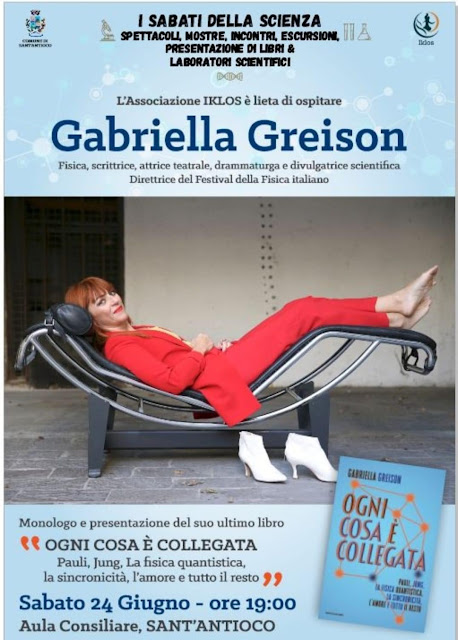Ciclo di seminari di Marc Barthelemy: "Spatial Networks". Università di Cagliari, 7-9 febbraio 2011
 Ciclo di seminari di Marc Barthelemy sul tema "Spatial Networks". Dal 7 al 9 febbraio al Dipartimento di Fisica dell'Univesità di Cagliari (Cittadella Universitaria, Monserrato, Cagliari). Orario: 15:00-17:30. Sala: B. Lingua: inglese. Ingresso libero. I corsi sono organizzati dal Dipartimento di Fisica e da Linkalab. Per informazioni: Alessandro Chessa alessandro.chessa@dsf.unica.it
Ciclo di seminari di Marc Barthelemy sul tema "Spatial Networks". Dal 7 al 9 febbraio al Dipartimento di Fisica dell'Univesità di Cagliari (Cittadella Universitaria, Monserrato, Cagliari). Orario: 15:00-17:30. Sala: B. Lingua: inglese. Ingresso libero. I corsi sono organizzati dal Dipartimento di Fisica e da Linkalab. Per informazioni: Alessandro Chessa alessandro.chessa@dsf.unica.itABSTRACT
Complex systems are very often organized under the form of networks where nodes and edges are embedded in space. Transportation and mobility networks, Internet, mobile phone networks, power grids, social and contact networks, neural networks, are all examples where space is relevant and where topology alone does not contain all the information. Characterizing and understanding the structure and the evolution of spatial networks is thus crucial for many different fields ranging from urbanism to epidemiology. In this set of lectures I will expose the current state of our understanding of how the spatial constraints affect the structure and properties of these networks. I will first review the most recent empirical observations and then the most important models of spatial networks. If time allows, I will also discuss various processes which take place on these spatial networks, such as random walks, navigation, resilience, and disease spread.
BIO
Marc Barthelemy is a former student of the Ecole Normale Superieure of Paris. In 1992, he graduated at the University of Paris VI with a thesis in theoretical physics titled "Random walks in random media". After his thesis, Marc Barthelemy focused on disordered systems and their properties. In 1999, he visited Prof. Stanley at Boston University and started to work on the properties of complex networks. Since 1992, he has held a position at the CEA (Paris) where his interests moved towards applications of statistical physics to complex systems. In particular, he worked on complex networks, theoretical epidemiology, and other problems in urban systems.



Commenti